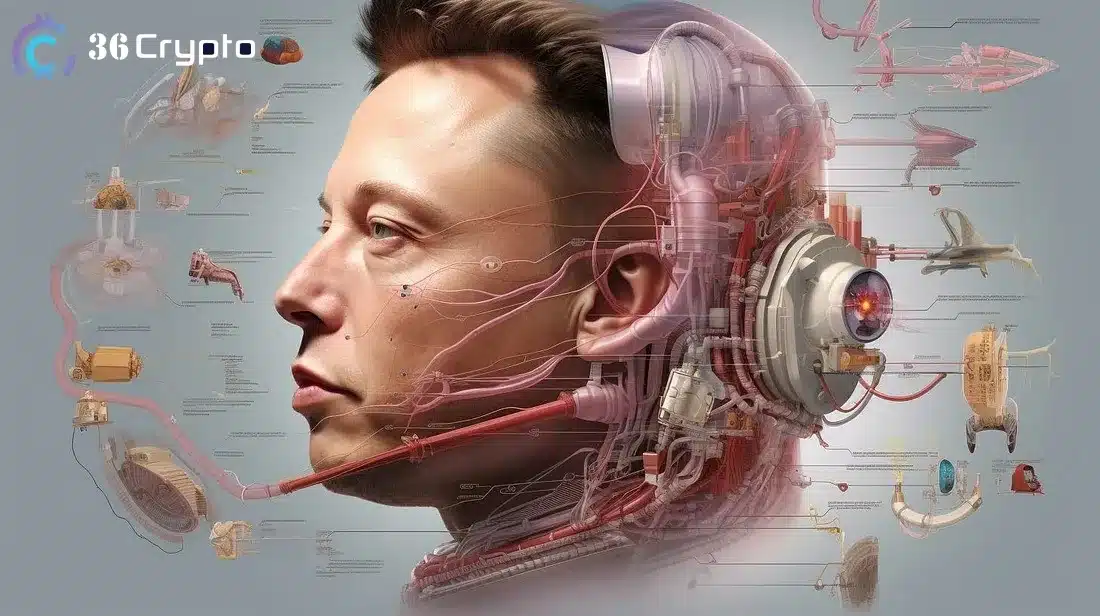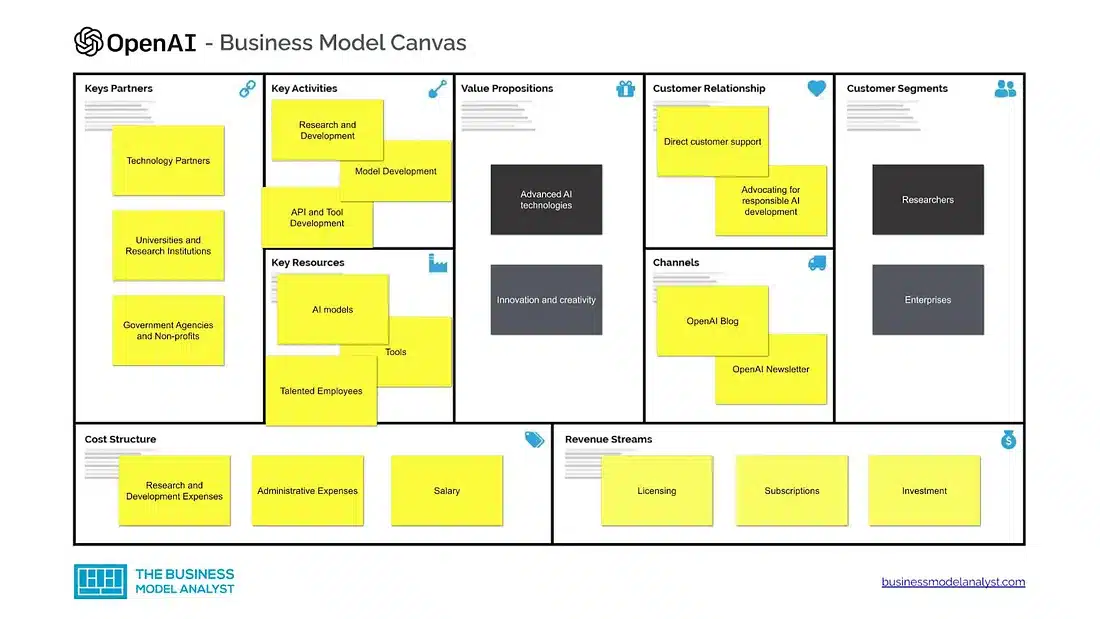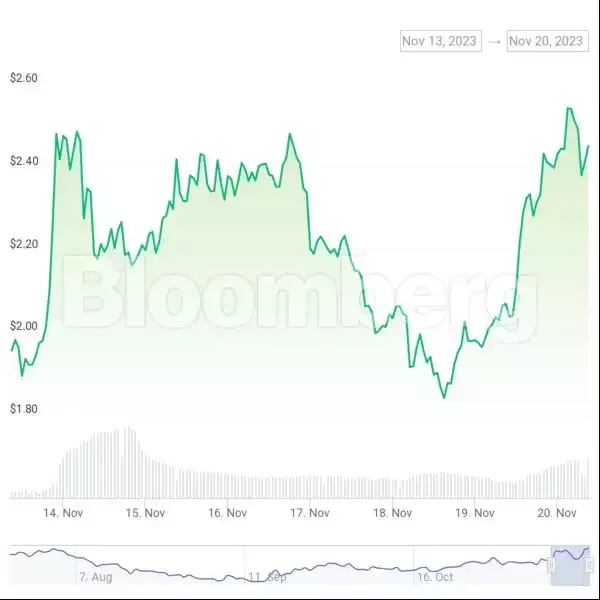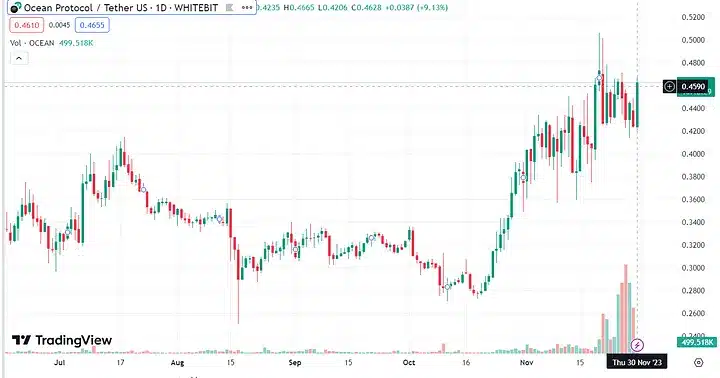The flamboyant and restless entrepreneur Elon Musk recently made an innovative move by investing in OpenAI, a leading artificial intelligence (AI) company.
Elon Musk’s involvement in the AI industry has received widespread recognition, and the strategic investment in OpenAI further strengthens his influence in the future of technology.
What is OpenAI?
OpenAI, short for “Open Artificial Intelligence,” is a research organization dedicated to the development and promotion of friendly artificial intelligence that benefits all of humanity.
The company was founded in December 2015 by a group of influential individuals, with Elon Musk, Sam Altman, Greg Brockman, John Schulman, Wojciech Zaremba, and others at the helm. Elon Musk and Sam Altman stand out as prominent members of the team.
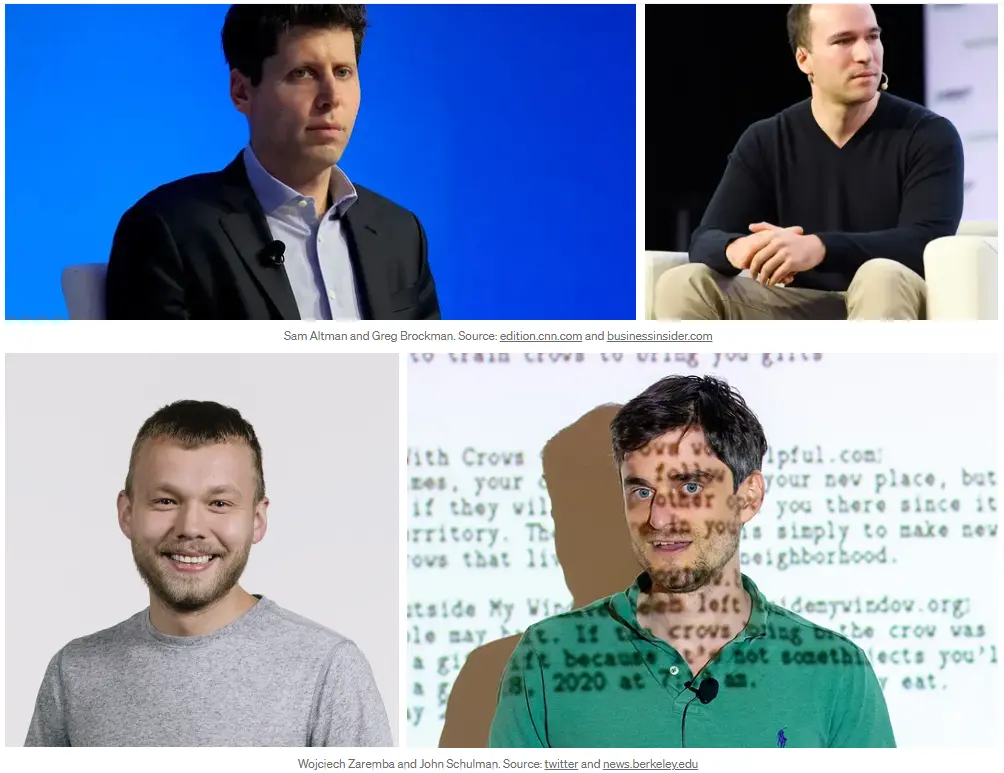
Sam Altman, Greg Brockman, Wojciech Zaremba and John Schulman
The Goals of OpenAI:
- Ensure that artificial general intelligence (AGI) benefits all and does not become a tool of power or control in the hands of a few.
- AGI refers to highly autonomous systems that surpass humans in most economically valuable tasks.
- OpenAI aims to create safe and beneficial AGI or assist others in achieving this goal.
The Impact of Elon’s Investment in OpenAI
Elon Musk has not disclosed the exact amount of his investment in OpenAI, but given his commitment to technological advancement, it is likely a significant sum.
Musk’s confidence in the company’s mission and potential could revolutionize the field of artificial intelligence. His investment is not surprising, as he has openly supported AI development.
Despite expressing concerns about the potential dangers of unregulated AI in the past, he has emphasized the need for preventive measures to ensure its ethical implementation. Through this step, Musk actively contributes to the development of AI technologies that prioritize safety, transparency, and the well-being of humanity.
Achievements of OpenAI
OpenAI’s work has led to breakthroughs in various fields, including natural language processing, reinforcement learning, and robotics. The company regularly publishes research, fostering collaboration and knowledge exchange within the scientific community.
Thanks to Musk’s investment, OpenAI will gain access to additional resources and expertise, allowing them to accelerate their research and development. This partnership has enormous potential for advancing the field of artificial intelligence and bringing us closer to achieving safe and beneficial artificial intelligence.
Elon Musk’s investment in OpenAI is just one aspect of his multifaceted approach to shaping the future of technology. As the CEO of Tesla and SpaceX, Musk has consistently demonstrated visionary leadership and an unwavering commitment to innovation.
His investments in OpenAI underscore his dedication to promoting responsible AI development and ensuring that humanity reaps the benefits of this transformative technology.
Impact of OpenAI on the Cryptocurrency Market
Following the recent turmoil between OpenAI and Sam Altman in the cryptocurrency universe, there is a buzz surrounding the rising prices of numerous AI-related cryptocurrencies.
This surge has garnered significant attention in broader crypto markets, coinciding with the OpenAI saga that saw Sam Altman briefly leaving and returning to the organization.
Furthermore, the rise in prices of AI-related tokens appears to align with current sentiments in the global cryptocurrency market, reflecting a 1.53% increase in the overall cryptocurrency market capitalization to $1.42 trillion. AI-related cryptocurrencies can be purchased on various platforms, including Binance, KuCoin, and WhiteBIT.
What Is an AI-Related Cryptocurrency?
An AI-related cryptocurrency is a cryptocurrency that is somehow connected to artificial intelligence, machine learning, and big data.
Since the emergence of crypto-AI enthusiasm, three categories of AI tokens have arisen:
- Utility or governance tokens for projects that use artificial intelligence for commercial purposes (e.g., NMR, SURE).
- Cryptocurrency tokens as fundraising tools for AI-based projects (e.g., VXV).
- Tokens that merely incorporate AI narratives into their marketing strategy without integrating it into their technology.
Top 3 AI-Related Cryptocurrencies Today:
1. GRT: The native token of The Graph
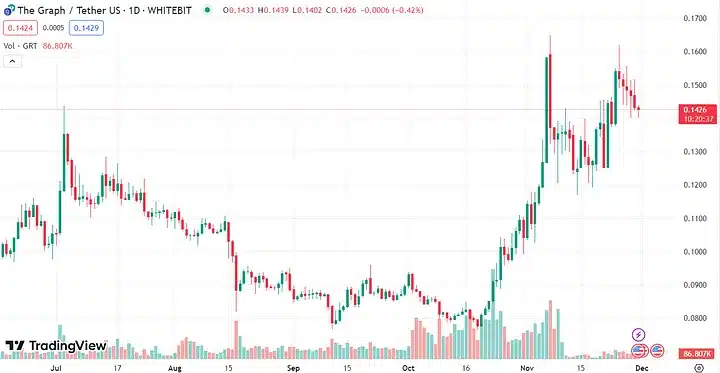
Price GRT. Source: TradingView
The Graph is an indexing protocol for querying data from networks like Ethereum and IPFS, used in various applications within DeFi and the broader Web3 ecosystem. It allows anyone to create and publish open APIs called subgraphs, which applications can query using GraphQL to access blockchain data.
2. OCEAN: The native asset of Ocean Protocol
Ocean Protocol is a protocol that combines blockchain technology, decentralized networks, and cryptographic methods to secure and privacy-preserving data exchange. It was founded to create technologies for the data economy at the intersection of blockchain, data, and artificial intelligence.
3. RLC: The native token of iExec
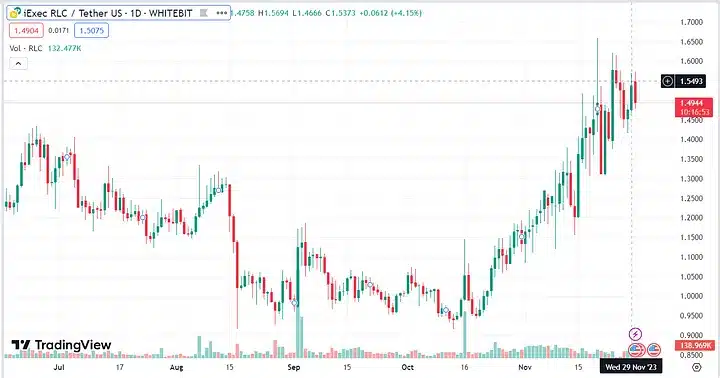
Price RLC. Source: TradingView
iExec is a leading provider of blockchain-based decentralized computing. Blockchain is used to organize a marketplace where people can monetize their computing power, applications, and even data sets.
Artificial intelligence statistics that will be relevant in the coming years
- Large companies are likely to implement an artificial intelligence strategy, as 75% of top managers see the potential for growth and competitive advantages in AI. Most consumers also expect improvements in their lives through AI, believing that new technologies can make life better (41% of respondents in India, China, Western Europe, and the USA).
- Many people are unaware that they are using artificial intelligence platforms, but in reality, 84% of people use them in various devices and services. Voice assistants on smartphones are widely used (96% of Android users and 98% of iPhone users), and voice search functionality is becoming increasingly popular (41% of people use it daily).
- Artificial intelligence is also actively applied in asset management, where it is used for predicting machine failures and optimizing the timing of technical maintenance (almost 29% of applications in the manufacturing industry).
- The implementation of AI leads to increased profitability for companies, as demonstrated by the example of Danone, which reduced forecast errors by 20% and product obsolescence by 30%.
- Retailers plan to use AI for price optimization (60% of consumers choose offers with favorable prices).
- AI-supported chatbots enhance business communications and will handle 95% of customer interactions (reducing human involvement to 5%). Currently, 38% of users have a positive attitude towards chatbots.
- Artificial intelligence can increase the operational profit of the automotive industry by 16% through reduced operating expenses.
- By 2030, AI will make a significant contribution to the GDP of various world economies, with China (26.1%), North America (14.5%), and the United Arab Emirates (13.5%) leading the way.
Conclusion
OpenAI, founded with the goal of promoting friendly AI for the benefit of humanity, has made remarkable strides in various AI-related fields. Elon Musk’s involvement and investment in OpenAI further bolster the organization’s potential to shape the future of technology.
The rising popularity of AI-related tokens underscores the growing interest in these technologies. In the context of AI’s expanding influence, statistics suggest that AI adoption is on the rise across various sectors, from large companies to everyday consumers. As AI continues to evolve, its transformative potential remains a driving force in the global economy, promising growth and innovation in the years ahead.
